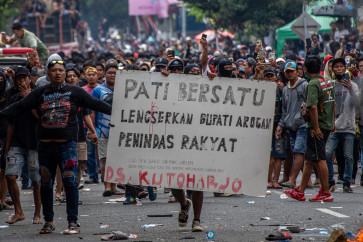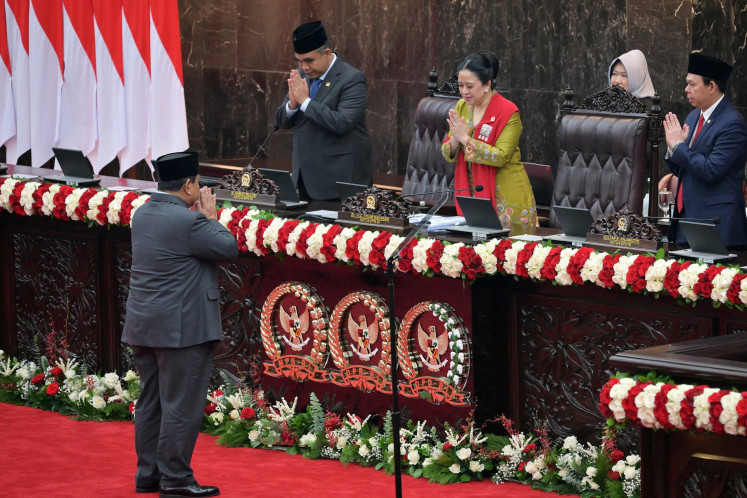Popular Reads
Top Results
Can't find what you're looking for?
View all search resultsPopular Reads
Top Results
Can't find what you're looking for?
View all search resultsCity expects drop in post-holiday newcomers on satellites’ appeal
Jakarta may well have lost its charm for those wanting to make a good living for themselves in the big city, as this year the administration expects less new arrivals in the capital after the Idul Fitri holiday
Change text size
Gift Premium Articles
to Anyone
J
akarta may well have lost its charm for those wanting to make a good living for themselves in the big city, as this year the administration expects less new arrivals in the capital after the Idul Fitri holiday.
The Jakarta Population and Civil Registration Agency said on Thursday that it was predicting a total of 36,847 newcomers at the end of the holiday season, a 37.77 percent decrease on last year’s number of 51,875.
The capital usually sees an influx of tens of thousands of new migrants each year, most of whom flock to the city in the days following the Idul Fitri celebration at the end of the Islamic fasting month of Ramadhan.
The influx coincides with the movement of millions of people returning to Jakarta after spending their holidays in their hometowns.
To counter this influx, the city administration often holds random identification card raids, which also take place in the days after Idul Fitri. People found without valid Jakarta identification cards during the raid are escorted back to their hometowns.
Agency head Purba Hutapea said that the same measure would be implemented this year. “We’re planning at least five raids after the holiday season,” Purba said.
According to agency data, the number of post-holiday newcomers has continually decreased in the past five years. The agency recorded that there were 109,617 post-holiday newcomers in 2007, 88,473 in 2008, 69,554 in 2009, 60,000 in 2010 and 51,875 last year.
Separately, Omas Bulan Samosir, an expert on economic policies and demography from the Jakarta-based University of Indonesia, said that economic growth in the city’s satellite areas had attracted more and more migrants. “Migrants are shifting away from targeting Jakarta, but they’re not shifting very far. They’re now looking at Bekasi, Depok and Tangerang,” Omas told The Jakarta Post.
She said Jakarta’s ever-increasing cost of living has also deterred migrants from coming to the city. “Housing and daily expenses are a lot cheaper in the satellite areas,” Omas said.
A study by the Australian National University in 2010 showed that many migrants to Jakarta occupied low-level jobs such as domestic workers and petty traders. They were drawn from those that dropped out of school at a young age because their parents were poor and had low levels of education.
The study said that low-skilled male migrants were able to make a living but at the cost of long working hours and mostly living in very disadvantaged circumstances in Jakarta.
Earlier this year, Governor Fauzi Bowo said that the constant inflow of people from across the archipelago into the capital had become the major cause of problems currently crippling the capital. He said constant migrant influxes had tilted the balance of population density and space availability, with almost 70 percent of available land in Jakarta filled with dense residential areas, offices and urban infrastructure.
As the nation’s capital, Jakarta is not only home to the central government, but is also a center of economy, education and culture, as well as an international city where embassies are located. More than two-thirds of the nation’s cash circulation is found within Jakarta, with the city contributing 16 percent of Indonesia’s gross domestic product.
City data shows that during the day, Jakarta is home to more than 12 million people, only half a million short of the 12.5 million population projected in the its 2010-2030 spatial planning bylaw. Currently, Jakarta has more than 10.1 million in its population.










